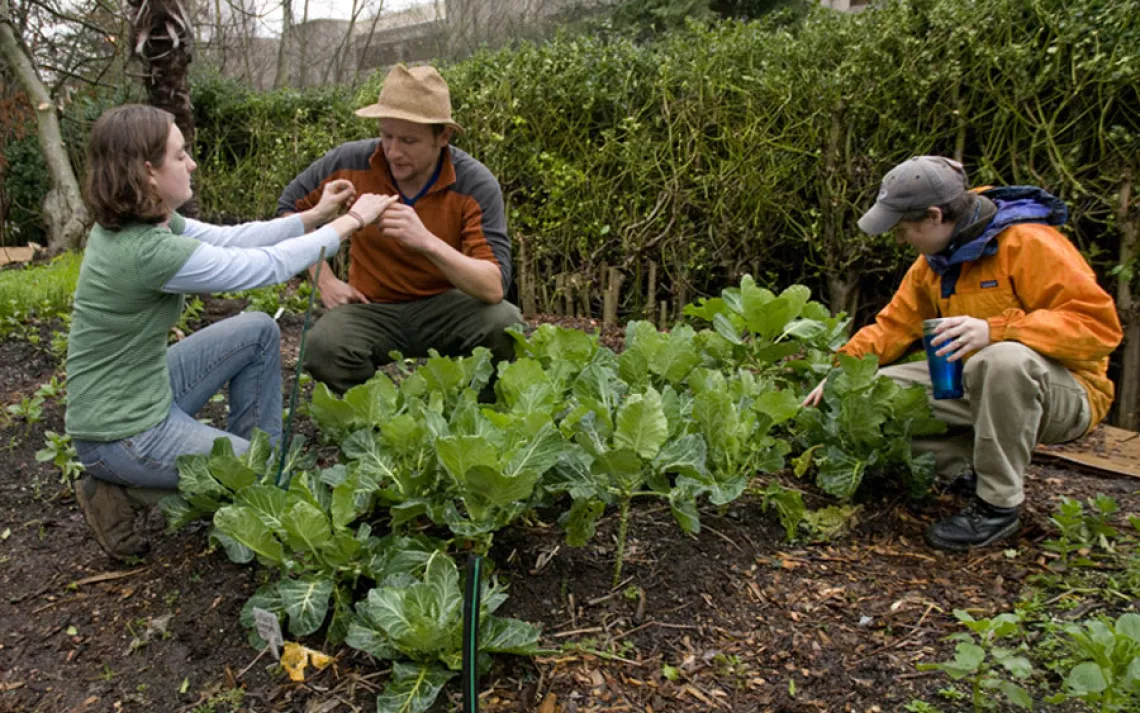Dig In
The best colleges help save the earth by making students stick their hands in it

Sometimes a scream is better than a thesis.--Ralph Waldo Emerson
It's well and fine to learn from a lecture. But rarely is a lecture life-changing.
Good professors know that discussing nature in the confines of a classroom is not likely to stir the soul—no matter how enlightening the lesson. Even the most impassioned teachers catch students nodding off. What awakens, they realize, is experience—getting hands dirty, immersion.
Each year since 2007, we at Sierra have sat in our offices for weeks doing the detailed, quantitative work to rank U.S. universities on their greenness. This year, we also wanted to find out what lessons are learned when the classroom walls fall away.
What happens when students sleep on damp earth, grow their own food, or build homes for the poor? Here's our hypothesis: They change, on the inside and on the outside.
To derive the numbers, we asked the Sierra Club's conservation experts to help us rejigger our 12-page questionnaire to reflect the Club's most pressing priorities. We e-mailed surveys to 940 schools and carefully sifted through the 118 responses we received. We corresponded with many of the colleges' devoted sustainability officers, and we lamented that those at several campuses—including some in last year's top 20—declined to fill out our survey.
Meanwhile, we dispatched writers to Bali, Utah, and the Adirondacks to report on schools where teachers work to make sure that the graduates they send out into the real world actually know what that place looks like.
As educators continue to deepen their devotion to sustainability and to immersive learning, we'll keep telling their stories. And we'll keep honing our methods for doing so. Because, as Emerson also wrote, "the more experiments you make the better."
 The Magazine of The Sierra Club
The Magazine of The Sierra Club